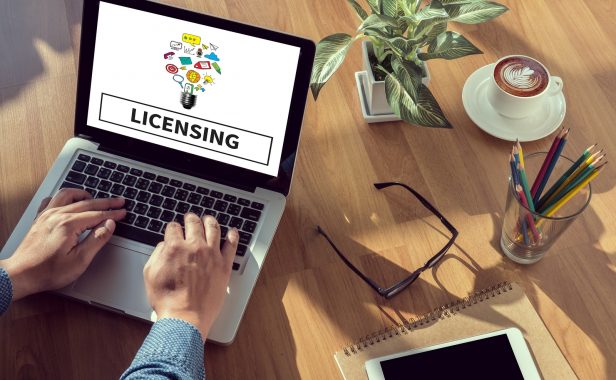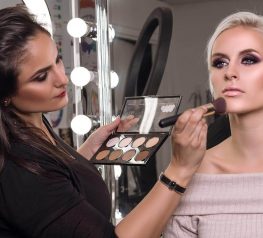Do You Need A Business License to Sell on Shopify?
It’s a common question amongst online retailers: Do you need a business license to sell on Shopify? The answer depends on various factors, including the type of products you’re selling and in which states you have tax nexus – we’ll talk about that below.
Luckily, selling on Shopify doesn’t require a ton of documentation, but there are still some necessary permits and licenses that you’ll need, mostly having to do with collecting taxes on behalf of the state.
In this post, we’ll go over in detail the types of products that are regulated, the different types of business licenses, sales tax permits, and how to determine the tax nexus for your Shopify store. We’ll also talk a little about tax documents that you’ll need to know about, including the 1099 Form that Shopify sends to qualifying merchants.
This will make it easy and clear to you so that you can rest easy knowing that you have all the correct documentation.
To make it easier to navigate the post, you can jump around with these links below:
- What Is A Business License?
- Do You Need A Business License for Your Shopify Store?
- What Is A Tax Nexus?
- Do You Need A Business License To Dropship on Shopify?
- What You Need To Know About Your 1099 Form & Shopify
- Does Shopify Collect Sales Tax?
- What Are the Different Types of Business Licenses for Online Stores?
- Do You Need A Business License If You Turn Your Home Into A Business?
- How To Get a Seller’s Permit or Resale Certificate
- Why Is It A Good Idea To Get A Business License Anyways?
- How To Register Your Online Business
- Business License Rules & Regulations Vary from State to State
- Do You Need A Business License to Dropship with GreenDropShip?
What Is A Business License?
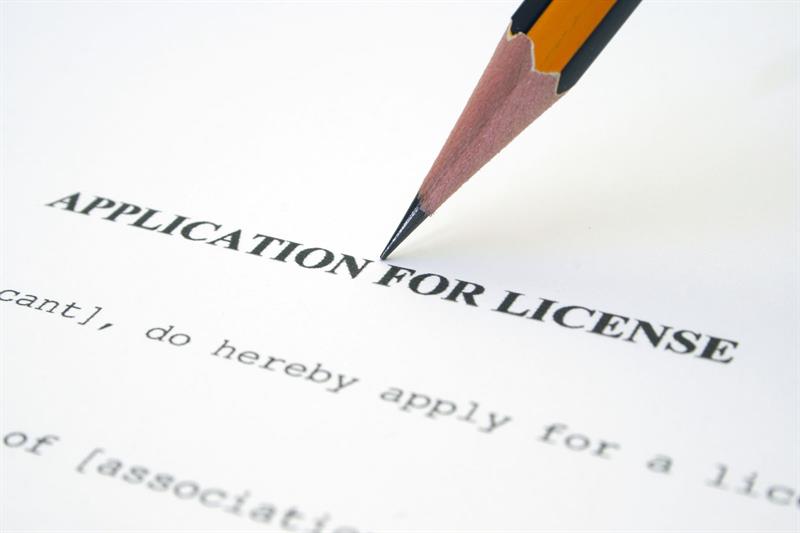
Business licenses – also known as business operation licenses – are permits that are issued by government agencies that allow companies to do business within that government’s jurisdiction.
In other words, it lets your e-commerce or Shopify store do business in the city, county, or state. Under certain circumstances, some online businesses need a version of this license to legally operate.
A business license is usually necessary if you’re selling a regulated product (like medication or firearms) or providing a regulated service (like real estate or construction).
For most Shopify merchants with a home business, it’s not necessary. That being said, it may be a good idea to still get the necessary licensing, especially if you’re going to be making large profits and will have to pay lots of taxes to state and federal tax authorities.
It’s also necessary to get a specific type of business license so that you can collect sales tax on behalf of the state.
You will typically need to renew your business license annually. E-commerce licenses don’t differ significantly from brick-and-mortar business licenses.
Regulations and how to register for a business operation license vary from place to place, so contact City Hall or check your state’s Secretary of State website to find and apply for the correct license. Requirements for obtaining these licenses are usually easy (you may have to pay a small fee).
Make sure to check whether your Business Operation License needs to be renewed—operating a business with an expired license can result in fees or fines.
Do You Need A Business License for Your Shopify Store?

In most cases, you don’t need a business license for your Shopify store, unless you are:
- Selling federally regulated products like alcohol, animal products, or firearms.
- Using the Shopify payment gateway.
- Storing inventory in your home and need health permits.
Notice that if you’re selling regular groceries or home products, then you don’t need a business license for your Shopify store. However, it may still be a good idea to check your local state licensing office or the Small Business Administration (SBA) to see what licenses may still apply.
However, in the context of a Shopify store that sells non-regulated good, you are responsible for collecting sales tax on behalf of the state. This is a recent legal development, so there are plenty of Shopify merchants who might be confused. No need to worry, we’ll go over everything you need to make sure your store is operating properly.
According to Nicole Couloute, accountant and owner of the Nicole Grace Collection, on Shopify, “You need a permit in most states. It’s called different things in different states […] some states refer to it as a sales tax resale certificate, seller’s permit, or a resale certificate. Also, major wholesale and dropshipping suppliers require resale certificates to purchase from their website or you’ll be charged sales tax on your orders.”
In other words, to collect sales tax and report those amounts to the state (monthly, quarterly, or annually), you’ll need to get a seller’s permit or resale certificate. Some states combine those forms into one while others have separate forms.
Some states even use those forms interchangeably or – if they don’t have a sales tax – don’t require either form. Finally, in order to properly follow the rules and regulations of the given state, you need to determine your tax nexus – we’ll cover everything you need to know in the next section!
What Is A Tax Nexus?
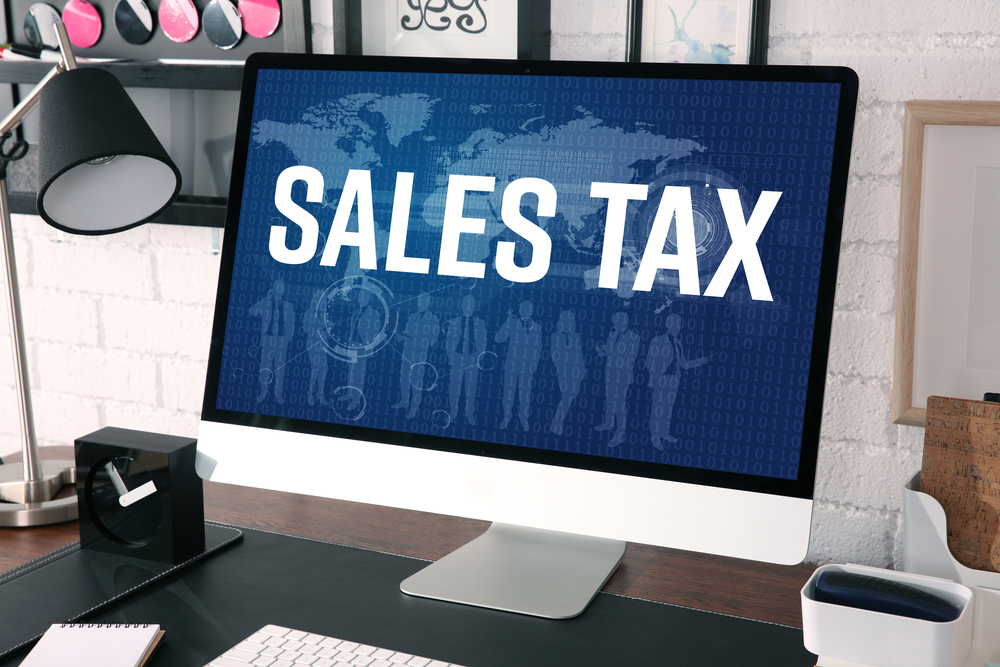
According to George Guillelmina, registered Investment Advisor and CEO of the Best of Budgets, “A tax nexus is the relationship or connection between a taxing authority (such as the state) and a business.” It’s important to understand that this connection with a given state creates a tax obligation.
This means that you have to collect sales tax in the state where you have a nexus. Certain business activities, including a physical presence in the state or reaching a certain number of sales, may establish nexus within that state.
There are different ways to determine nexus in a given state, but the easiest is usually economic nexus. This is basically just the amount of sales you do in a state, although each state will have slightly different criteria.
For instance, Idaho has established that $100,000 a year is the minimum threshold for having economic nexus in that state.
Thankfully, there are some free resources for Shopify merchants to determine where they have nexus:
- An interactive map of states and their sales taxes.
- How each state determines nexus, including annual sales thresholds.
- This free sales tax risk assessment to find out where your sales have created nexus.
As you can see, finding your tax nexus is absolutely critical. This determines what kinds of sales tax permits you’ll need to get (if the state collects sales tax) as well as any other business licenses that may be necessary.
However, you have to first determine if you have economic nexus in that particular state, and then you can contact the Secretary of State or Department of Revenue and apply for the necessary documentation.
Do You Need A Business License To Dropship on Shopify?

Dropshipping on Shopify is functionally the same as having a Shopify store. As a result, the same rules apply regarding having a business license for your e-commerce store.
In other words, you don’t need one unless you sell regulated products or store inventory in your home. But it’s always a good idea to check your local state licensing or legislation office as well as the Small Business Administration (SBA). Here is a resource to find the SBA location nearest you.
This is one of the reasons why dropshipping is such a convenient e-commerce business model! Let’s say you decide to dropship groceries on Shopify – because your dropshipping supplier stores all the inventory, it’s their responsibility to meet health codes and get the proper storage permits and/or business licenses from the state or city.
As a result, you don’t have to worry about all the extra business licenses that come with storing food and perishables, even if you’re dropshipping groceries in your Shopify store. That’s the responsibility of your dropshipping supplier.
However, you’re still responsible for filing and paying your taxes, so we’ll go over the necessary tax documentation – especially your 1099 form – in the next few sections.
RELATED ARTICLES:
- What Is Dropshipping? A Complete Guide
- Best Shopify Dropshipping Apps in 2021
- The Guide To Selling Food On Shopify
What You Need To Know About Your 1099 Form & Shopify
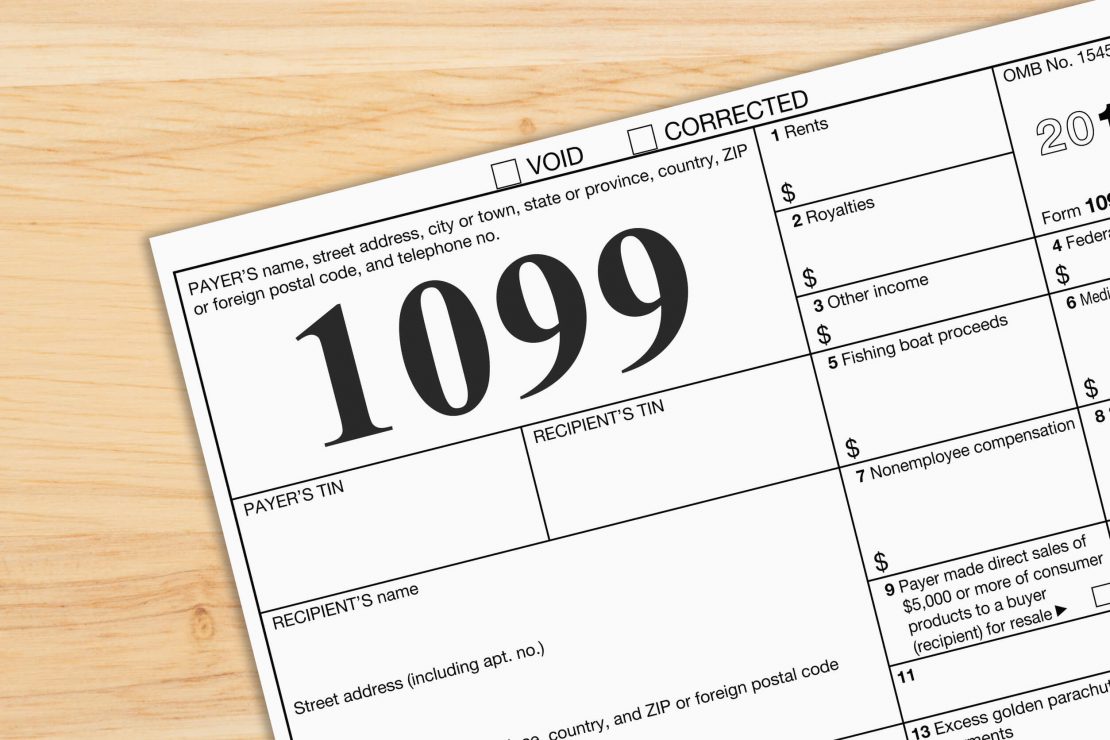
Having a Shopify store is just like any other job or form of income: you still have to pay close attention to taxes! Remember, the taxman always gets their dollar, no matter what you do for a living.
So when we talk about a “business license” for your Shopify store, we’re always referring to the relevant tax documentation that you need to keep track of in order to properly track, file, and pay your taxes.
That being said, let’s take a look at how taxes and 1099 Forms work for your Shopify store.
What Is An “Independent Contractor”?
According to the IRS, “if you are an independent contractor, then you are self-employed.” As an online retailer, you don’t work for Shopify, you work for yourself. Shopify simply hosts your store, but you’re still 100% self-employed.
This is extra important when we talk about your tax obligations. Essentially, any income tax that you’re responsible for will have to be tracked. filed, and paid by you. Unlike an employer, Shopify does not handle these tax logistics.
So, if you’re an independent contractor, then you have to report your store income on a 1099 Form. This is different than if you were an employee of a conventional employer – in that case, you would report your income on a W-2 Form. Plus, your employer would automatically withhold payroll taxes from your paychecks.
However, this applies to income tax – when it comes to sales tax, it’s a bit different. As we mention elsewhere in this post, as the store owner you’re ultimately responsible for collecting sales tax determining what the sales tax rates and laws are for your economic nexus or state of operation.
Shopify makes it easy to collect it with their Sales Tax tool, but at the end of the day, you need to be aware of what you have to collect in order to follow tax laws and retail best practices.
Does Shopify Send A 1099-MISC Or A 1099-K Form?
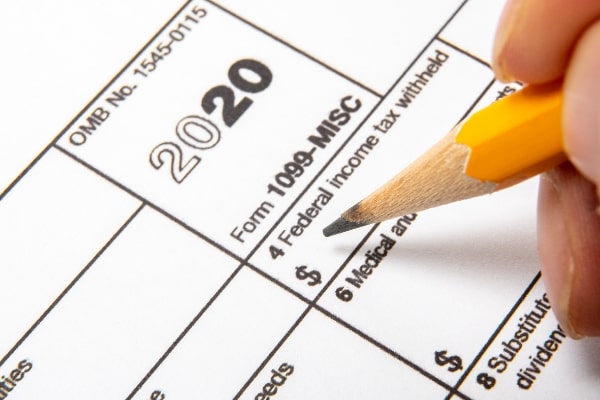
This brings us to our next point: Shopify and your 1099 form. This is a crucial piece of tax documentation – as a matter of fact, it’s the single most important document for your tax obligations.
But first of all, let’s differentiate between 1099-MISC and 1099-K forms:
- 1099-MISC. This is for Miscellaneous Income if you earn more than $600 in freelance work or contract labor during the tax year.
- 1099-K. This is for Payment Card & Third-Party Network Transactions if you accept bank card transactions for payment.
So which one does Shopify end? Since you’ll be processing credit card transactions via the payment gateway in your store, then you’ll be receiving the 1099-K form from Shopify.
How To Find Your 1099 Form On Shopify
By federal law, Shopify is required to submit a 1099-K form to the IRS for all qualifying merchants. In order to qualify for the 1099-K, you must;
- Process $20,000 or more in sales for that year.
- Have 200 or more transactions in that year.
In some states, including Massachusetts and Vermont, you’ll qualify with fewer than even 200 transactions. Plus, Shopify must send this 1099 form for each store of each qualifying merchant – in other words, if you have multiple stores, and they’ve made over $20,000 or 200 transactions, then you’ll have to file a 1099-K for each store.
If you qualify for this 1099, then you’ll see it in your Shopify Admin under the Documents folder of your Payments section by the end of January following the preceding tax year.
Because of the ultra-sensitive nature of these documents, only the account owner login will be able to access them. If you can’t find it in your admin, then you probably don’t qualify.
Finally, Shopify may also email you the 1099-K form to email address listed under the account owner when you first start your store.
Does Shopify Collect Sales Tax?
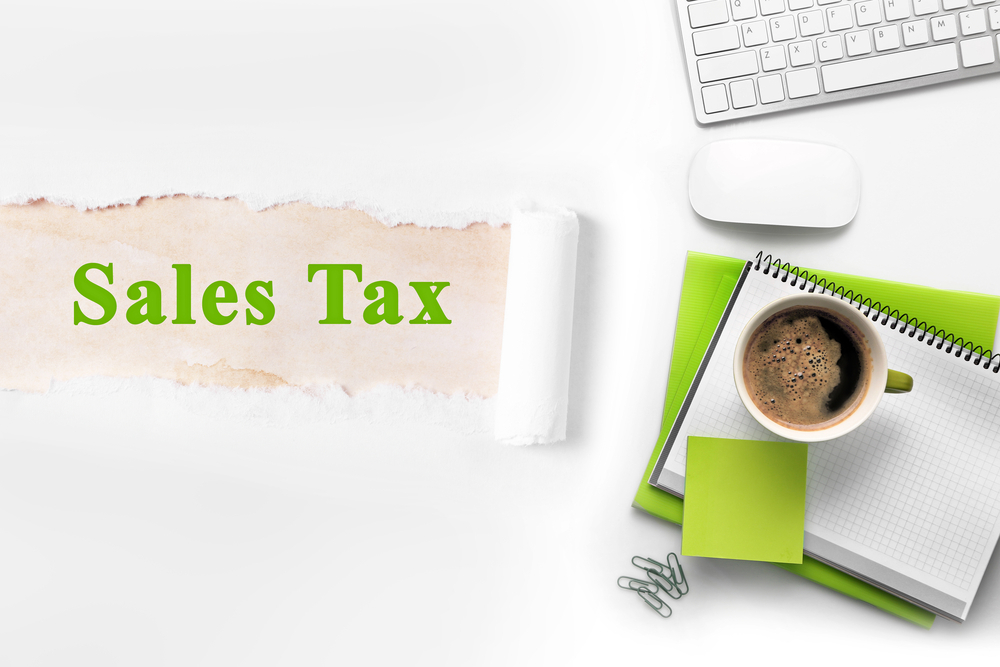
Yes, if you specify which states, then Shopify can automatically collect sales tax for you, even if you have sales nexus in more than one state. To begin the process of collecting sales tax, you simply go to your Shopify admin and in Settings you select Taxes.
It’s important to consider the following conditions:
- If you have sales nexus, you must collect sales tax from all buyers regardless of where the item is shipped from.
- If you don’t have sales nexus, then you’re not required to collect, regardless of where the item is shipped from.
After you’ve determined if you have sales nexus, then you have to obtain the sales tax permit (aka seller’s permit or resale certificate) for that state. This is crucial because most states consider it illegal to collect sales tax without a permit.
Once you have the proper permits, set up your Shopify channels to collect the correct amount of sales tax and periodically file sales tax for each state where you have nexus.
Additionally, when it comes to collecting sales tax in your Shopify store, here are a few useful tips:
- Separate the sales tax from the item price – this will inflate your product prices.
- Check here to see if your state requires you to charge taxes on shipping rates.
- Set your tax overrides – some categories (food, clothing) may be tax exempt.
If your store is becoming really successful and you’re dealing with a large volume of sales – or you have nexus in multiple states – then there are apps available that make it easier to collect sales tax for your Shopify store. The TaxJar Sales Tax Automation app is especially useful – it has a 30-day free trial as well as paid plans that range from $19/month to $199/month (depending on how many orders you process).
What Are the Different Types of Business Licenses for Online Stores?
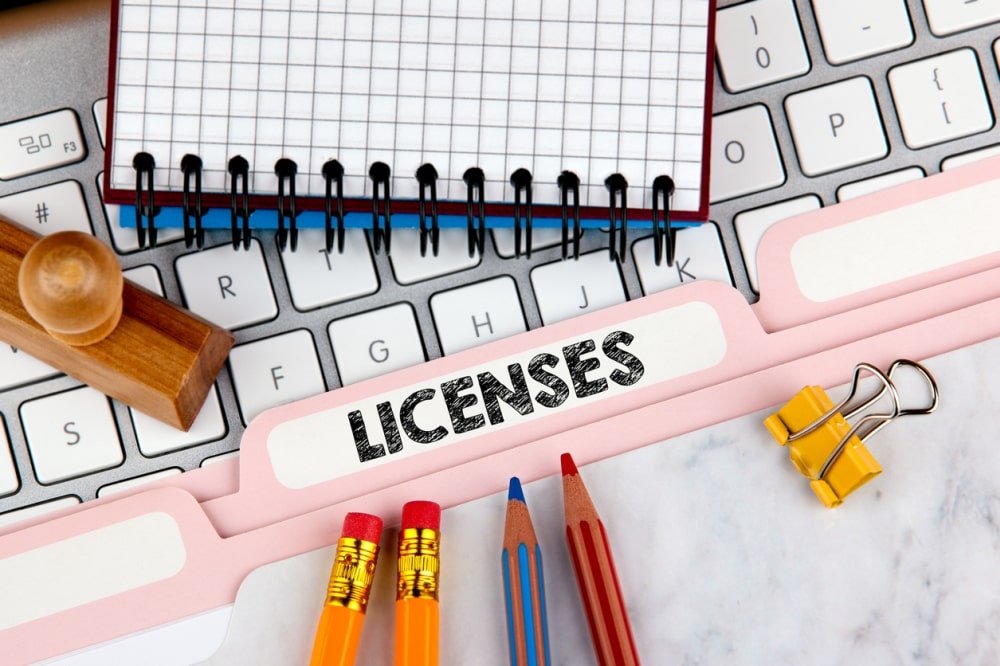
Now that we’ve established that most Shopify stores don’t require a business license, let’s still go over the different types of licenses.
Depending on your location and the nature of your work, you may need a mix of licenses and permits at the federal, state, county, and municipal levels to open and run an online business. These include registration for small business taxes.
Following are the main license types you’ll need to consider when operating an online business:
Seller’s Permit
Also known as sales tax permit or sales and use tax permit. This is a specific type of business license required for businesses that sell taxable goods or services. The seller’s permit is required so that your e-commerce business can collect and remit state sales tax.
Alaska, Delaware, Montana, New Hampshire, and Oregon have no state sales tax, so the seller’s permit is not necessary there. Of the other 45 states with sales tax, all of them except Florida and Missouri require online sellers to get a seller’s permit.
In most states, this condition only applies to stores with sales of at least 100k or 200 transactions within the state. Exceptions are Oklahoma, which has a 10k requirement, and Kansas, which requires all remote sellers to have the seller’s permit, from the very first sale onward.
These regulations are precisely why it’s so important to determine your economic nexus – once you know which state(s) you have nexus, then you can get the right permits and/or business licenses.
Resale Certificate (aka Reseller’s Permit)
This is where things can get a little confusing – a resale certificate is related to a seller’s permit. Some states choose to use one term over the other, and some roll the two documents together as a single document.
Again, this is why it’s so crucial to determine where you have economic nexus. To find the resale certificate for a specific state, you can visit the Department of Revenue website for that state.
If you buy products and/or materials for resale to consumers, this permit might be necessary. When buying something in bulk for resale or paying a wholesale price, you must present this permit to the supplier to get a tax-free sale. This is because the vendor reports sales to state or federal tax authorities.
Essentially, a reseller’s permit keeps e-commerce business owners from having to pay taxes twice on goods since the sales tax will be collected further down the road from the final customer.
In other words, resale certificates identify a business as having the right to make certain nontaxable purchases.
As a dropshipping supplier and wholesaler, GreenDropShip requires a resale certificate from resellers before they become a member. This is not the same as a general business license, and it is necessary if you want to use GreenDropShip as your supplier for your online store (or dropshipping store) on Shopify.
General Business License
Depending on the state, your e-commerce business may require a general business license. Additionally, you may need a business license at county and/or municipal level.
For instance, some cities require businesses that are based at home to get a home occupation permit/certificate of occupancy. Again, this varies from jurisdiction to jurisdiction.
According to Mr. Guillelmina, registered Investment Advisor and CEO of the Best of Budgets, “This license is reviewed yearly and may be required by the city or county where you’re in. You need this license to regularly carry on business in your location.”
Employer Identification Number (EIN)
All businesses need a federal Employer Identification Number (EIN). This is for tax purposes. It’s easy to get – you can register in minutes on the website for the Internal Revenue Service (IRS).
If you employ people, you will need to register for employer withholding tax in the jurisdictions where they work. Plus, you may also need to register with the state unemployment office and/or worker’s compensation.
According to the IRS, you are eligible for an EIN if:
- Your principal business is located in the U.S. or U.S. territories.
- You have a valid Taxpayer Identification Number (like SSN).
It’s important to note that you’re limited to one EIN per responsible party – in this context, “responsible party” means the person who owns, controls, or exercises ultimate control over the business entity.
Finally, if you’re a sole proprietor (you have no employees), you can use your Social Security Number for tax identification. For the purposes of employment taxes, contract employees (freelancers) do not count as taxable employees.
Do You Need A Business License If You Turn Your Home Into A Business?
If your e-commerce business or Shopify store are based out of your home, then you may need to secure additional permits if:
- A large number of employees and/or customers come to your home
- Making changes to show that it’s a commercial space (hanging a sign)
- You store a lot of inventory (your house/garage double as your warehouse)
- Shipping carriers frequently come to pick packages up
- There are significant nuisances like noise or odor
Many of these don’t apply to e-commerce store owners, including Shopify stores. If you sell online (via platforms like Shopify, Amazon, or WooCommerce), you won’t have customers coming to your home.
However, you’ll likely have numerous carrier pickups (since your home is doubling as your fulfillment center) and you may need a permit if you store lots of inventory.
Of course, this does not apply if you are using the e-commerce platforms to dropship. Remember, with dropshipping, your supplier handles the logistics of storing, packing, and shipping the products to the end customer. This means that they’re running the fulfillment center while you focus on marketing.
RELATED ARTICLE: Home Business Ideas: How to Start an Online Business.
How To Get a Seller’s Permit or Resale Certificate
You can usually get a seller’s permit by mail for minimal or no fees. Submit an application to your state revenue department with the following information:
- Federal Tax ID numbers
- Address of your office/HQ
- State of residence
- Revenues
For your reseller’s permit (resale certificate), apply through your state’s Department of Revenue.
However, some states do not issue a separate reseller’s permit – instead, they rely on your sales tax identification number.
You’ll have to check the website and/or call the Department of Revenue in the state where you have economic nexus. This is why it’s so crucial to have your business address or headquarters location finalized as well as determining which state you have nexus in (be sure you use the resources available in the section above).
Why Is It A Good Idea To Get A Business License Anyways?
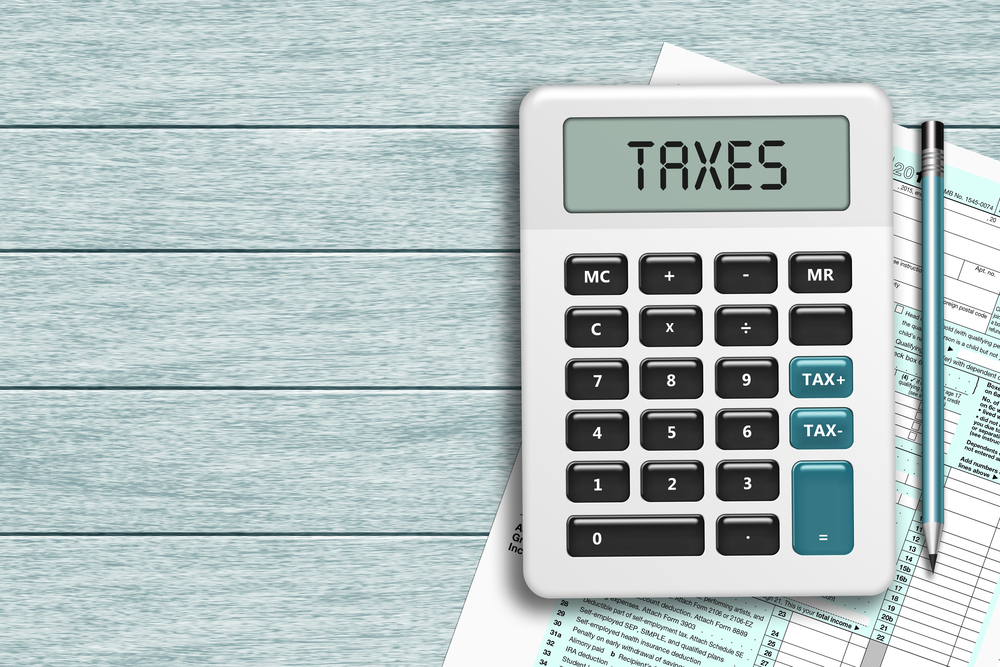
We’ve established that you don’t need a license for your Shopify store (unless you sell regulated products or store inventory in your home). That’s great news! However, it’s still a good idea to get one in some cases, especially if you’re pulling in a lot of profit. Let’s go over the three primary reasons:
Taxes
This is a big one. Remember: always pay your taxes! We cannot stress this enough. If you don’t, you may be subject to extensive penalties and even criminal charges. Plus, don’t forget that you’re also responsible for gathering sales tax in the states where you have economic nexus – this is now the responsibility of the Shopify merchant.
That being said, you can also save a lot of money on tax write-offs, and you’ll need to have a real, registered business to take advantage of the tax code for businesses.
It’s important to remember that Shopify will generate and send you a 1099-K Tax Form once you process at least $20,000 or more than 200 transactions in a calendar year. If you want to learn more about Shopify and your 1099, then be sure to check out the section above: What You Need To Know About Your 1099 Form & Shopify.
Once you qualify for the 1099, you’ll see it when you click the Documents link at the top left of your Shopify Payments payout page.
Liability
Getting certain types of business licenses can help limit your liability. According to accountant and Shopify store owner, Nicole Couloute, “It is best to have an LLC to limit liability and protect your personal assets. If you are making a lot of money in your business, you may want to change to an LLC that’s taxed as an S Corp.”
Registering as an LLC or S Corp is pretty easy. However, there are tax benefits to these business structures, so you’ll need to go through the Internal Revenue Service (IRS). To create an S Corp specifically, you’ll need to file form 2553 with the IRS.
Legitimacy
If your goal is to build meaningful relationships with trusted suppliers, you need to show them you are trustworthy yourself. No reputable brand is going to work with you if you don’t seem like a legitimate business.
Being registered as an LLC or S Corp also shows suppliers you are worthwhile and serious about your business.
Additionally, most legitimate suppliers will require you to get a Federal Employer Identification Number (EIN) and a resale certificate or seller’s permit (depending on what it’s called in the state where you have economic nexus).
As you can see, even if you don’t need a business license, it might still be a good idea to get one. This is especially true if you’re expecting to make serious profit running your online store and possibly even making it your primary source of income.
How To Register Your Online Business
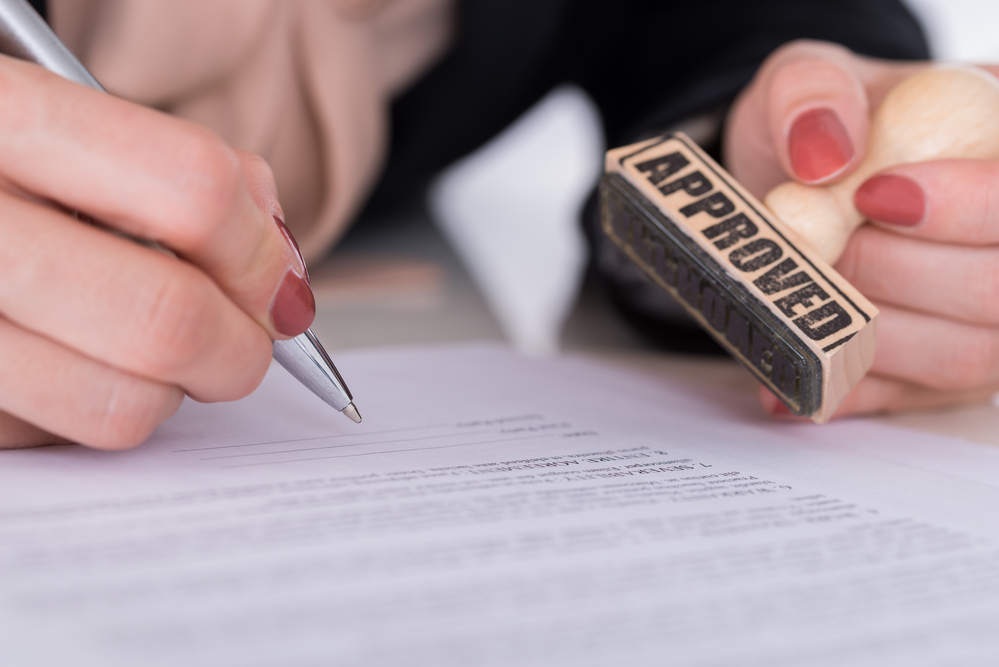
Let’s say you’ve decided to register your online business so that you can be prepared in case it really takes off. Here are the following steps you need to take to register your online business once you’re making a profit:
Choose A Business Structure
You have different options. The most common for online businesses are a sole proprietorship, a partnership, or a limited liability company (LLC). These structures have differences related to how taxes are calculated and paid, as well as concerns such as profit-sharing and liability with business partners.
Register A “Doing Business As” (DBA) Name
Legally, any business name other than the given name of the owner has to be registered with local authorities. LLCs and corporations include the name selection as part of the overall paperwork.
Sole proprietorships and partnerships need to file a specific form with their local government to register a name; otherwise, it defaults to the name of the owner or owners.
This assumed business name is often called the Doing Business As or DBA name. The legal name is needed for tax paperwork, licenses, permits, and other government forms.
Get A Federal Tax ID
Also known as an Employer Identification Number (EIN). Sole proprietorships with no employees don’t need a federal tax ID number from the IRS, but corporations, partnerships, and LLCs do. The federal tax ID number designates a business and is useful for keeping personal and business taxes and finances separate.
Get A Sales Tax ID
There are tax obligations on the state and local levels for the vast majority of e-commerce businesses. New ventures need to register with their state’s revenue office, and in some states may also have to apply for a permit to collect sales tax.
As you can see, paying taxes is an inevitable part of making money in any business venture. Remember, e-commerce is no different than a brick-and-mortar retail operation – if you make money, then Uncle Sam is going to want their cut. Depending on the type of business structure you choose, your tax obligations may vary wildly.
Business License Rules & Regulations Vary from State to State

This may seem obvious, but it’s important to point out that the business license rules and regulations will vary from state to state. That’s why it’s so important to check with your local licensing or legislation office.
For instance, in California you’ll need a seller’s permit to collect sales tax on behalf of the state. Plus, if you’re an entity, you’ll need to incorporate or organize with the California Secretary of State.
In some cases, city codes may also apply. For example, in Los Angeles, you may need a business license if you are operating out of a commercial space. However, most Shopify store owners avoid this – in fact, this is one of the major benefits of having a Shopify store. You can avoid these kinds of business expenses!
For reseller’s permits (resale certificates), not every state issues them. Additionally, out-of-state vendors may accept your home state reseller’s permit, or you may have to fill out a separate form using your taxpayer identification number (TIN). Alabama, California, Florida, Hawaii, Illinois, Louisiana, Maryland, Massachusetts, Washington, and the District of Columbia do not accept out-of-state resale certificates.
For general business licenses, Alaska, Delaware, Nevada, Tennessee and Washington give statewide general business licenses. Again, it is unlikely that you’ll need these for a Shopify store.
To start a business in California as an entity, you’re required to file for a Doing Business As (DBA) name and get a resale permit. You’ll also need to buy space in a local newspaper and run a 4-week announcement about your DBA name.
If you move to a different part of California, your licensing requirements may drastically change. In LA, you likely won’t need a standard business license if you don’t sell restricted products. Remember, these rules only apply if you aren’t selling under your own name – in those cases, you won’t need to file for a DBA.
Do You Need A Business License to Dropship with GreenDropShip?
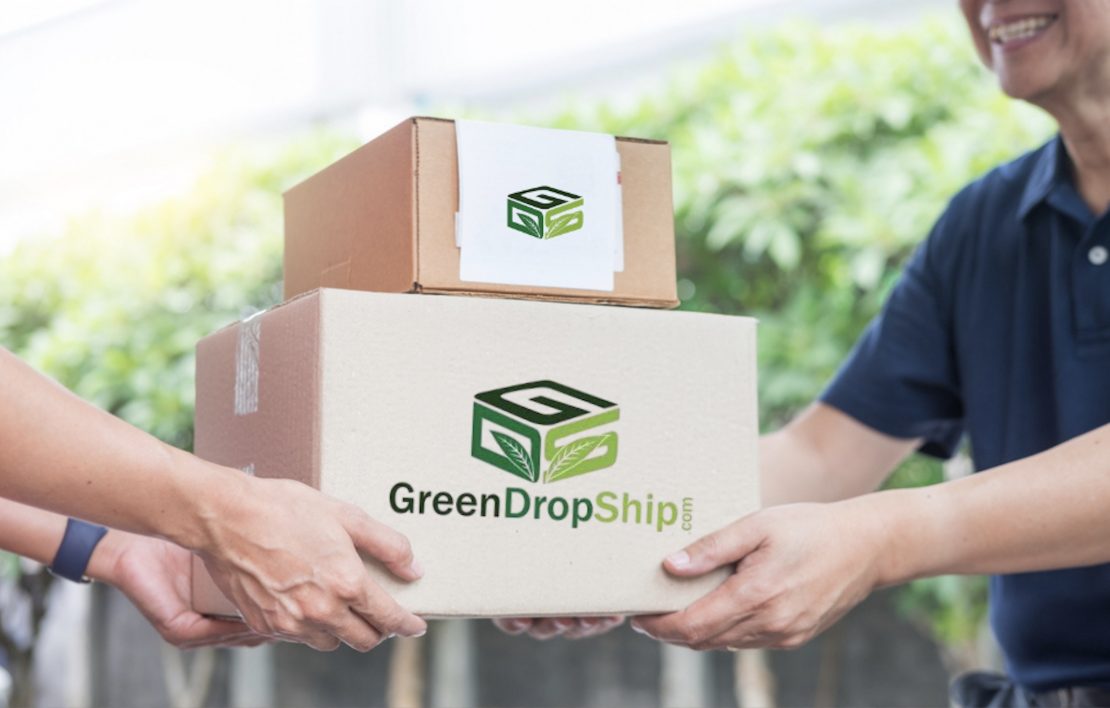
The dropshipping business model means you don’t keep any inventory in your home, so you won’t need most business licenses. You’re still obligated to collect sales tax (if applicable) in the state where you have economic nexus, so you’ll need to get a resale certificate or seller’s permit, depending on your state’s regulations.
Plus, like all legitimate suppliers, GreenDropShip does require some documentation. New members must submit the following information in order to get approved:
- State Resale Certificate Number
- Federal Employer Identification Number (EIN)
- Street Address
- City, State, Zip Code, and Country
The resale certificate means you don’t have to pay sales tax for wholesale items.
However, if you have nexus in the following states, then you are exempt from state resale certificate requirement since they don’t have sales tax:
- Alaska
- Delaware
- Montana
- New Hampshire
- Oregon
Finally, GreenDropShip also accepts multi-jurisdictional resale certificates in certain situations – just contact our customer service team to find out what documentation you need.
GreenDropShip integrates seamlessly with Shopify via our product feeds. We’ve also released a new Shopify dropshipping app that makes it easier than ever to sell our products online. At this time, it is the only Shopify app that lets you dropship or sell certain products like groceries.
GreenDropShip offers over 20,000 natural and organic products, most of which are made in the USA. This includes an extensive inventory of gourmet and specialty items in categories like Food & Beverage, Bath & Body Care, Vitamins & Supplements, Home Goods, Baby Products, and Health & Wellness.
The information provided on this website does not, and is not intended to, constitute legal advice; instead, all information, content, and materials available on this site are for general informational purposes only.
